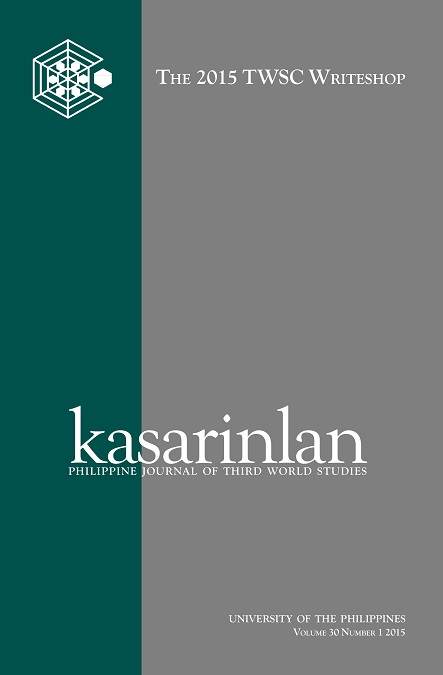The Contested Development of a Philippine Tourism Landscape: The Case of Nasugbu, Batangas
Abstract
A strong reliance on tourism is one of the Philippines’s key strategies to attain economic growth and security. This requires infrastructures and scenic locations that attract tourists. However, these scenic locations also contain the agricultural landscape. Consequently, peasants are displaced from their homes and livelihoods to give way to tourism projects. With Nasugbu, Batangas as a study site, the paper employs critical landscape approach by examining the sociopolitical and economic relations between government officials, private tourism developers, and farmer residents that take place in its agricultural and tourism landscapes. Through interviews with various stakeholders and examination of state policies, infrastructure, and resources, the study reveals that the combination of the decentralized power of the local government units and the dynamics between government and private sectors (political patronage and through corporate social responsibility) boost the government’s agenda of making tourism work for the economy. The paper posits that the kind of development that arises from the shared landscape of tourism and agriculture is contested development.
Published
2016-03-12
Section
Articles
Keywords
landscape; tourism; development; agriculture; Nasugbu; Philippines
By submitting a manuscript, the authors agree that the exclusive rights to reproduce and distribute the article have been given to the Third World Studies Center.



